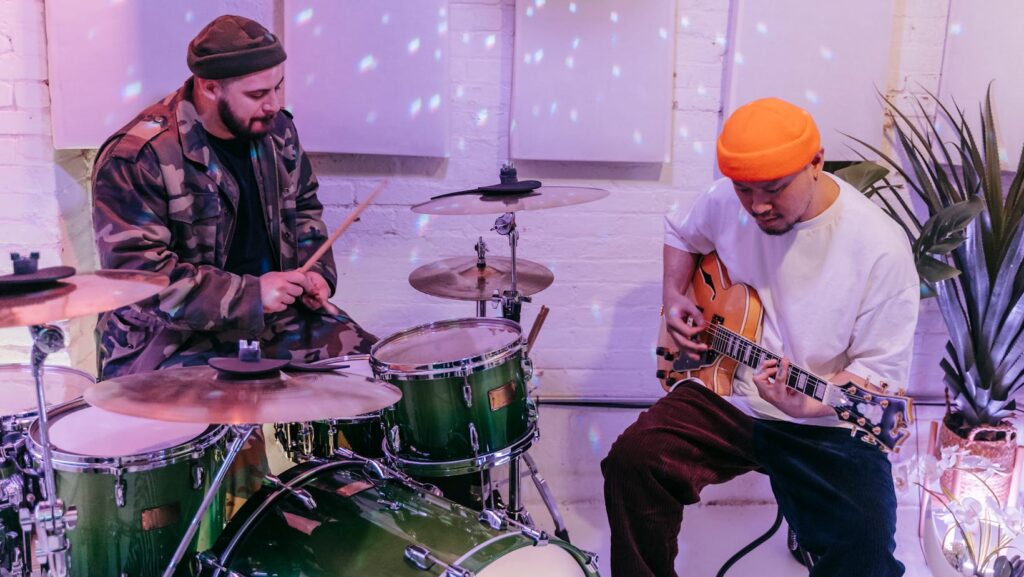In the tapestry of music history, certain moments stand out as pivotal turning points that have shaped the landscape of the industry. These moments not only altered the course of music but also influenced cultural movements and societal norms. From the advent of rock ‘n’ roll challenging the status quo to the digital revolution democratizing music production, each milestone marks a significant shift in how music is created, consumed, and perceived.
Exploring these turning points offers a fascinating glimpse into the evolution of musical genres, technologies, and the artists who dared to push boundaries. Whether it’s the British Invasion redefining popular music or the rise of streaming services changing how we access songs, these historical junctures continue to resonate in today’s musical tapestry. Join us on a journey through time as we uncover the defining moments that have shaped the melodies we cherish and the rhythms that move us.
Turning Points In Music History

Jazz emerged as a groundbreaking genre, marking a significant turning point in music history. Originating in the late 19th century and flourishing through the early 20th century, jazz revolutionized musical expression. It’s a fusion of African rhythms, blues, and European harmonies, creating a distinct sound that captivated audiences worldwide. Jazz challenged traditional music norms with its improvisational nature and syncopated rhythms, paving the way for modern music experimentation.
Rock ‘n’ roll shook the music industry to its core, representing a pivotal moment in music history. In the 1950s, artists like Elvis Presley and Chuck Berry brought a new energy to the scene, challenging societal norms and conventions. The raw, rebellious spirit of rock ‘n’ roll appealed to a younger generation, igniting a cultural revolution. With its driving beats and electrifying performances, rock ‘n’ roll became a symbol of freedom and self-expression, influencing musical genres for decades to come.
These milestones in music history not only transformed the soundscape but also laid the foundation for the diverse array of genres that exist today. They continue to inspire artists to push boundaries, experiment with new sounds, and redefine the musical landscape.
Technological Advancements in Music

In music history, one of the significant turning points was the introduction of electric instruments. Electric guitars, keyboards, and amplifiers transformed the sound of music, paving the way for new genres and styles. Artists like Les Paul and the invention of the solid-body electric guitar revolutionized how music was played and heard. The electric instruments brought about a more versatile and amplified sound, changing the dynamics of performances and recordings.
By embracing digital platforms, musicians found ways to bypass traditional gatekeepers, empowering themselves to release music independently and engage with listeners worldwide. This shift democratized the music industry, allowing for a more diverse range of voices and genres to flourish. The impact of digital music platforms continues to shape how music is created, shared, and experienced in the modern era, marking a crucial turning point in the evolution of the musical landscape.
Iconic Music Festivals
Woodstock: More Than a Music Festival

Woodstock, a legendary event in the history of music, wasn’t just a music festival; it represented a cultural milestone. It took place in 1969 and symbolized a turning point in music and societal norms. With iconic performances by artists like Jimi Hendrix and Janis Joplin, Woodstock became a symbol of the counterculture movement of the 1960s. The festival’s spirit of peace, love, and music resonated with a generation seeking change, making it an everlasting symbol of unity and cultural revolution.
Live Aid: Concerts That Changed the World
Live Aid, a dual-venue benefit concert held in 1985, marked a significant moment in music history. Organized by Bob Geldof and Midge Ure to raise funds for Ethiopian famine relief, Live Aid featured simultaneous concerts in London and Philadelphia. The event showcased memorable performances by legendary acts such as Queen, U2, and Led Zeppelin, captivating a global audience. Live Aid not only raised substantial funds for a humanitarian cause but also demonstrated the power of music to unite people worldwide for a common goal.
